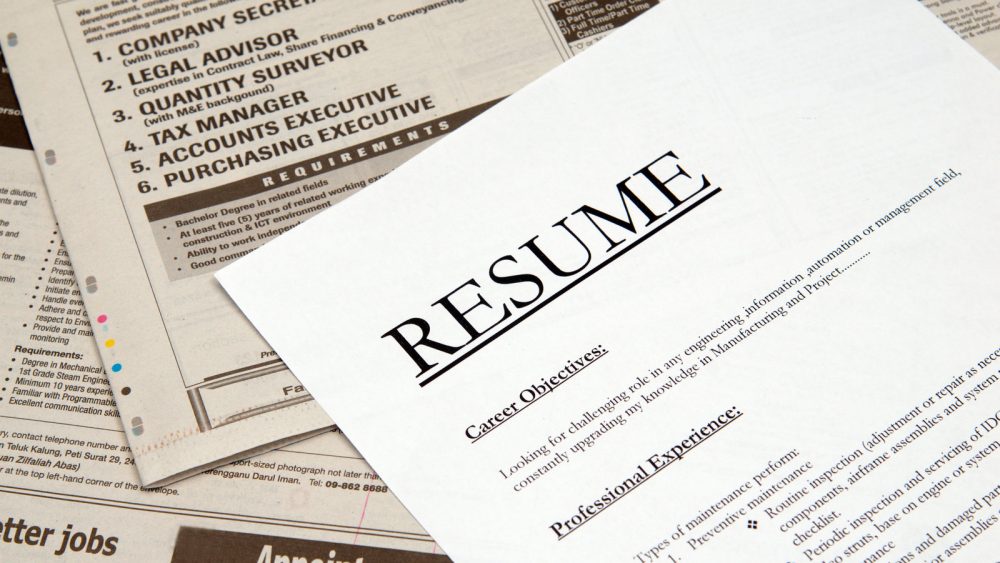Are you searching for resume formatting tips to apply for your dream job? If you think you have to work on your knowledge of writing the perfect resume, you’re going to need some pointers on how to do it effectively.
This article will discuss what a good resume should look like, including the essential parts of writing an effective resume, and how long it should be, depending on the experience level.
What Should a Good Resume Look Like?
Many people do not know how to format resumes that can easily appeal to a prospective employer.
Does your resume have to look attractive, filled with embellished words, and arranged in a fashion that appeals to the eye? A quick answer would be “no.” It should not be so because effective resumes don’t have to be fancy, as long as the information needed by the hiring party is provided, and much more importantly, emphasized.
A good resume is ideally a brief document that allows potential employers to read the critical parts easily. This technique significantly increases your chances of being approved by employers and ultimately gets you hired faster.
Resumes contain objective-focused pages that include three essential information: contact information, a brief introduction, and relevant experience. However, in the new age, with many employers utilizing the perks of digital technology, candidates need to add one more important factor in their resumes when applying online: keywords.
Keywords are words or phrases that are strategically scattered throughout the resume. It is used to help make your resume visible to employers in your industry. This strategy narrows your reach to relevant jobs and efficiently enables you to land on companies with the same goals and objectives.
3 Essential Parts of a Resume
I. Contact Information
The contact information portion should basically include your name, address, phone number, and email address. Employers need to have these details about you if they need to contact you for an interview with a job offer.
II. Introduction
The introduction is the section where you can tell employers about yourself, what career you’re pursuing, what experience you have in your past jobs, etc. This part should emphasize your edge that makes you uniquely valuable compared to other candidates. It must answer why employers should stop looking anywhere else and hire you for the position you’re qualified for.
III. Experience, Education, & Skills
The last part of the document should contain previous accomplishments that led you to acquire your current skill set.
Your experience should contain information on the previous companies you’ve worked for, length of employment, and your responsibilities.
Information about your education and training should also reflect on the resume. It might be essential for future references for your academic accomplishments, especially for fresh graduates with no work experience.
And of course, make sure that you emphasize your acquired skills, whether from work or academic experience. You have to leverage any relevant abilities that strengthen your qualification for the desired position.
Tips on Writing an Effective Resume
Do you know the appropriate resume format for your industry? Do you know what details to put on your resume? These are just a couple of questions you need to answer before getting started. 
Give plenty of space on the things you need to consider putting on your resume. You can improve your chances of getting the job you want by following some simple resume formatting tips. These resume formatting ideas will help you improve your resume’s appearance and help your prospective employer evaluate you more easily.
Tip #1: Direct the text toward the specific job you are applying for. Stay focused and feature short, simple sentences with striking word points.
Tip #2: Highlight your most relevant skills.
Tip #3: Keep consistent formatting on your resume. Use color and font that is easy on the eyes.
Tip #4: Take note of the guidelines for the writing style that is most suitable for a particular job.
By following the essential resume writing tips, you can land on that job, no matter how difficult the competition is in the current market!
How long should a resume be?
This is one of the most common questions among job applicants. Many believe that a resume must be at least two to three pages long, and some even prefer it longer.
A lengthy resume’s typical result involves the hiring manager not thoroughly reading the entire thing, which compromises the purpose of writing the resume. If it is too short, your resume might appear bare, and it might give employers the impression that you’re inexperienced and, therefore, unfit for the job.
So, how long should it be?
Generally, a resume should not be more than two pages, but it can be shorter or longer, depending on what you want to apply for and what your target employer requires. The best way to determine how long a resume should be is to establish valuable information based on experience.
The average resume length of entry-level and experienced applicants is at one full page with regular font size. For applicants with more years of experience, it can be at least two or more. Additional information, samples, and document references can be attached to your portfolio.
Pro Tip: It would be a good idea to ask an expert or someone experienced in creating resumes. There are tools available online, but you don’t have to rely on them entirely to avoid making your resume less personal. However, they can help you achieve the proper format, organize vital information, and give useful advice on writing the perfect resume.
Summary
You can already get started with these essential formatting tips: keep a consistent color and font design, include all pertinent information, and follow the advice on how long the resume should be for both entry-level and experienced professional applicants.
A good resume is methodically written to appeal to candidate hunters. Know how to present your qualifications as simple as possible, but with strategic applications. This way, it will be easier for you to convince employers to qualify you for the position.
Above all, don’t make the mistake of cramming your resume into a word processor to accomplish an automated format. An effective resume does not simply require proper construction; it must also connect to prospective employers looking for real talents.



Comments are closed.